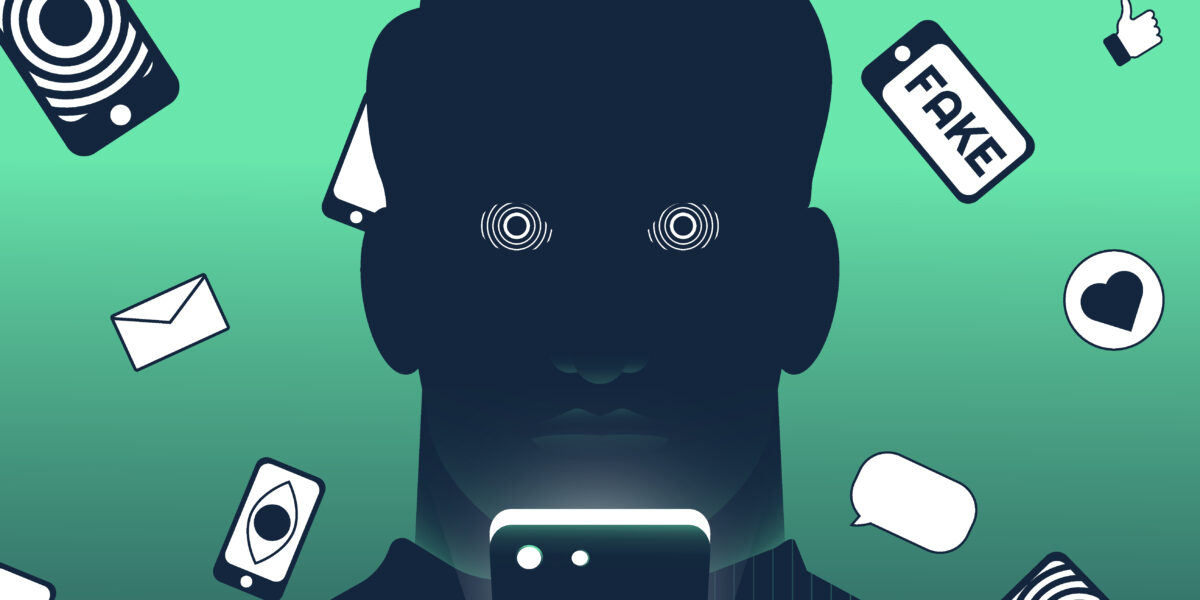Do you have an irresistible urge to search websites, social media platforms and hashtags for negative news about the latest hot topic?
From election season and politics to high-profile news alerts focusing on negativity and violence, the potential for doomscrolling topics are as numerous as they come.
What exactly is doomscrolling?
Doomscrolling is the act of compulsively checking negative posts, sources and videos when you consume content online for long periods of time. It’s not just about checking a social feed; it’s becoming hyper-focused on negative news so much that it impacts your health and wellness. Doomscrolling anxiety is different than generalized anxiety. It brings with it a unique set of symptoms that must be monitored so that you don’t experience physical distress on top of your emotional stress and anxiety.
According to the American Psychological Association (APA), “…65% of U.S. adults always or often felt exhausted by politics and 55% always or often felt angry.”
Find help for stress, anxiety and depression at ChristianaCare:
In Delaware, New Jersey and Pennsylvania: Visit Behavioral Health Outpatient Services
or call 302-320-2100.
In Maryland: Visit Behavioral Health
Outpatient Services
or call 410-620-0008.
Symptoms
What can doomscrolling do to your mind and body? For people with depression or anxiety, doomscrolling can worsen these symptoms, trigger an episode or possibly cause panic attacks. Doomscrolling reinforces negative thoughts and feelings, increases stress hormones, perpetuates the feeling of helplessness and overstimulates the brain.
Your physical well-being is impacted by:
- Poor eating habits – not enough or too much.
- Disruption or reduction of quality sleep.
- A short temper – even when you’re not scrolling.
- Taking your anger out on others.
- Reduced motivation to exercise or otherwise be active.
- Weight gain.
Doomscrolling can produce anxiety and depression symptoms, including:
- Headaches.
- Elevated blood pressure.
- Brain fatigue.
- Muscle tension and tenderness.
- Eye strain.
Be selective with your feed
It’s human nature to seek information, answers and the latest news on topics we enjoy or feel are important. You can follow these topics in healthy ways without your feed becoming all doom and gloom. Here are some ways you can ensure you have a healthy feed during election season and beyond:
There’s more than meets the eye. Make sure you read more than rely on images, memes and click-bait videos. Fact-check the source and ensure you’re following reputable organizations.
Recognize that news outlets can be biased. Find reputable sources twice a day for updates on the topic(s) you are following, and stick to that regimen. This limited time helps you process and understand the information without overloading it.
Unfollow or stop reading unhealthy sources. It’s all about consuming responsibly. Unfollow accounts on social media or stop reading media platforms that bring you down or feed your self-doubt.
You are in control. You can’t control the election, politicians, the news or any other negative topic or how content about those topics is created. But you can control how you think and what you do.
Pay attention to your feelings. Are you feeling anger, frustration or anxiety? The more you identify your emotions, and when they arise, the more you can control what triggers them. The APA says that “…1 in 20 people also reported being so distressed about politics that they had suicidal thoughts.”
Where to Find Emergency Help 24/7
If you or someone you know is talking about suicide, self-harm, a mental health crisis, or any other kind of emotional distress, get help immediately. You can call or text the Suicide and Crisis Lifeline at 988.
Remember, anxiety related to doomscrolling can be a temporary feeling. It may feel like it is taking over at that moment. It’s important to step back, check your emotions, and put yourself back in the driver’s seat. You get to decide how to respond to those emotions. Choose the healthier options. Start with taking good care of yourself, including your physical and mental health.
- Eat well. Get plenty of healthy carbs, lean proteins and healthy fats.
- Exercise regularly. This means at least 30 minutes of moderate, physical activity five days per week.
- Relax. Try practicing mindfulness and mindfulness-based meditation. Check out our Healthwise library for mindfulness resources.
- Remember the things you are most grateful for in your life. Write down one to three things you are thankful for each day.
Be Mindful of Your Mental and Physical Health
It’s all about finding the right balance. It’s okay to walk away from a topic in your news feed if it no longer serves a purpose in your life or has consumed your thoughts and emotions. Remember, you can still be involved, but don’t let it emotionally affect you. Your first priority must be to take care of your health and wellness. Ensure your news feed reflects your long-term goals and interests and maintain healthy scrolling habits.
Call us today
If you’re struggling with stress, anxiety, depression or grief and want to talk with someone, you are not alone. Contact us to schedule an appointment with one of our behavioral health providers today.



